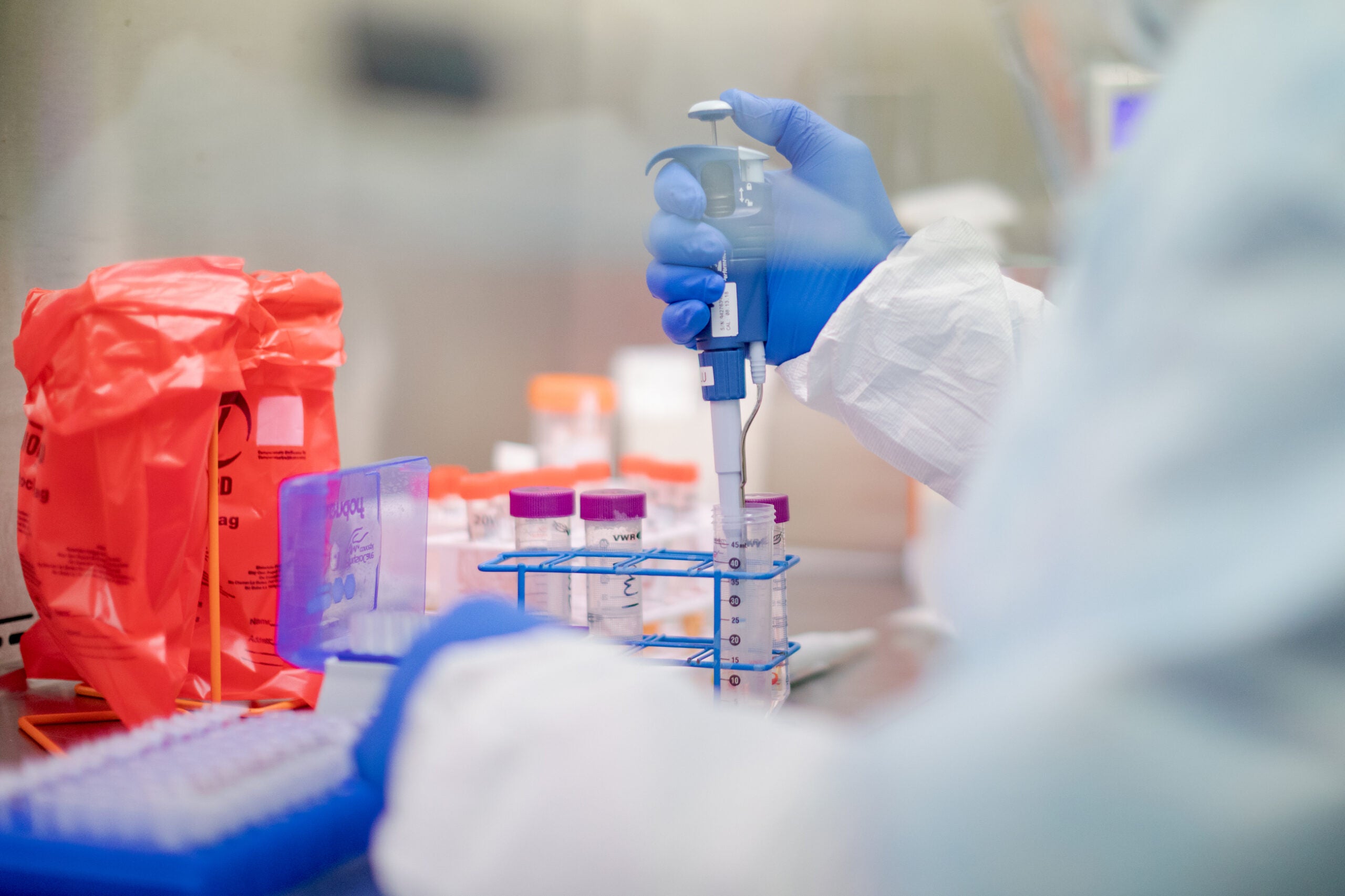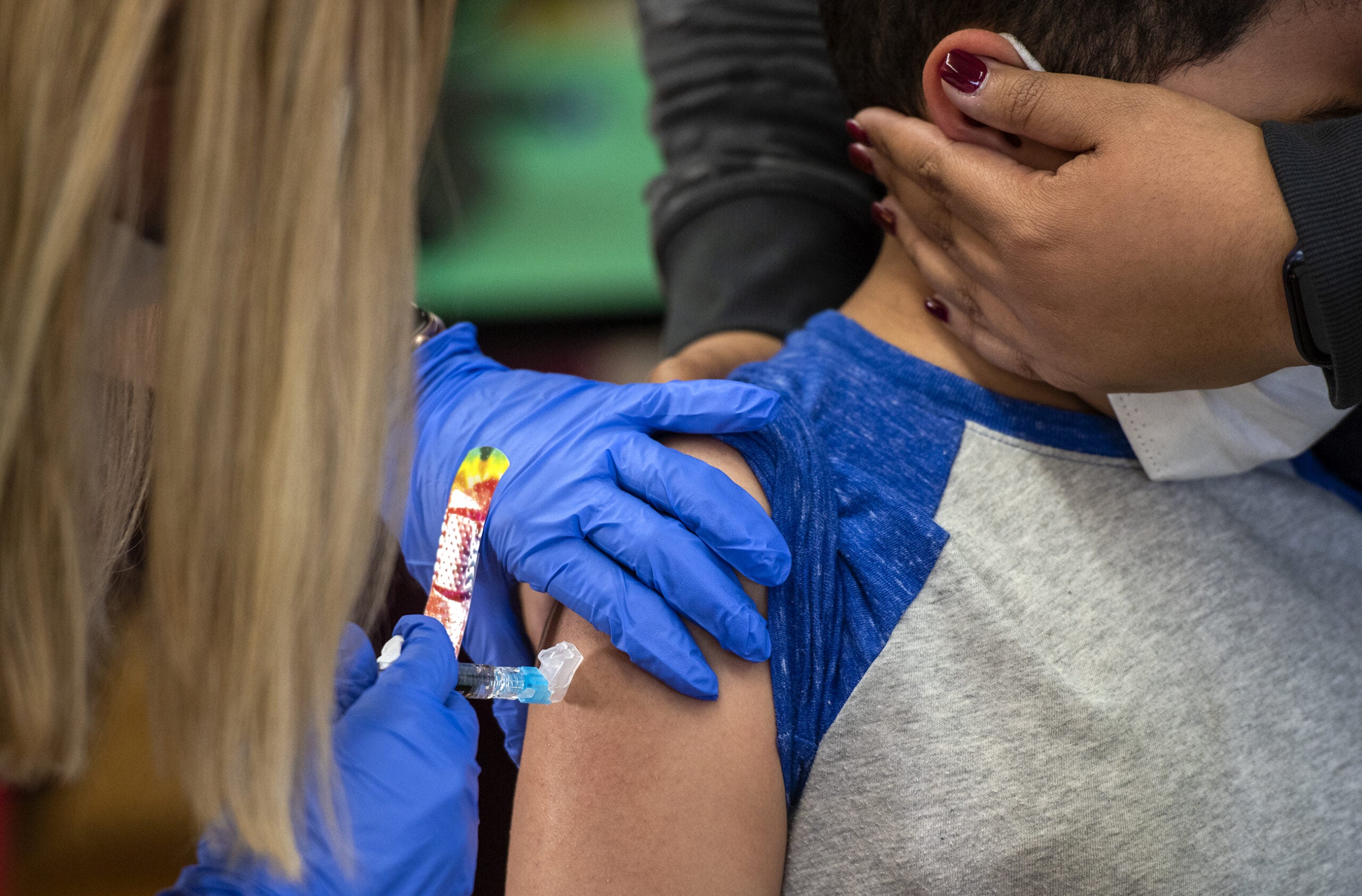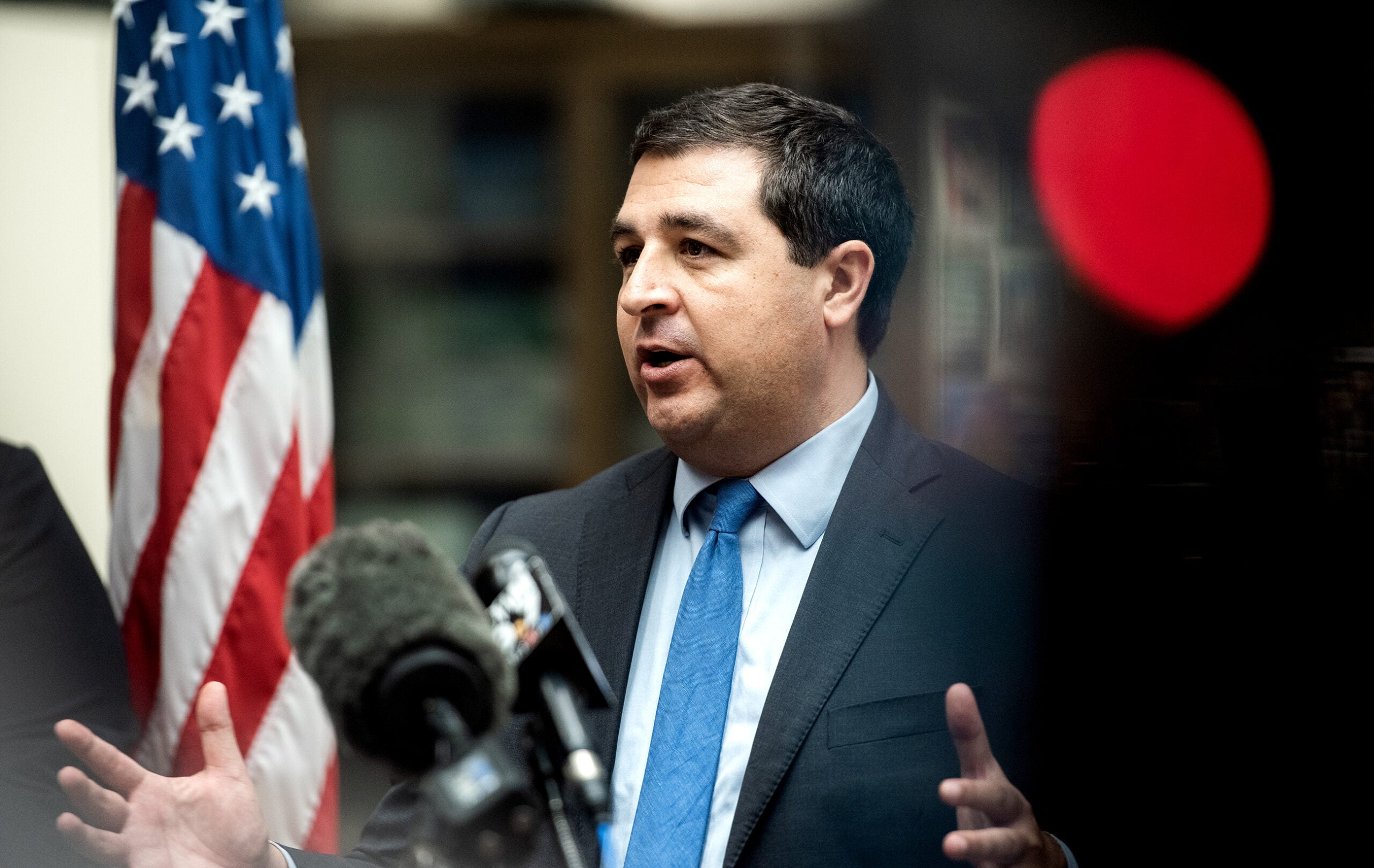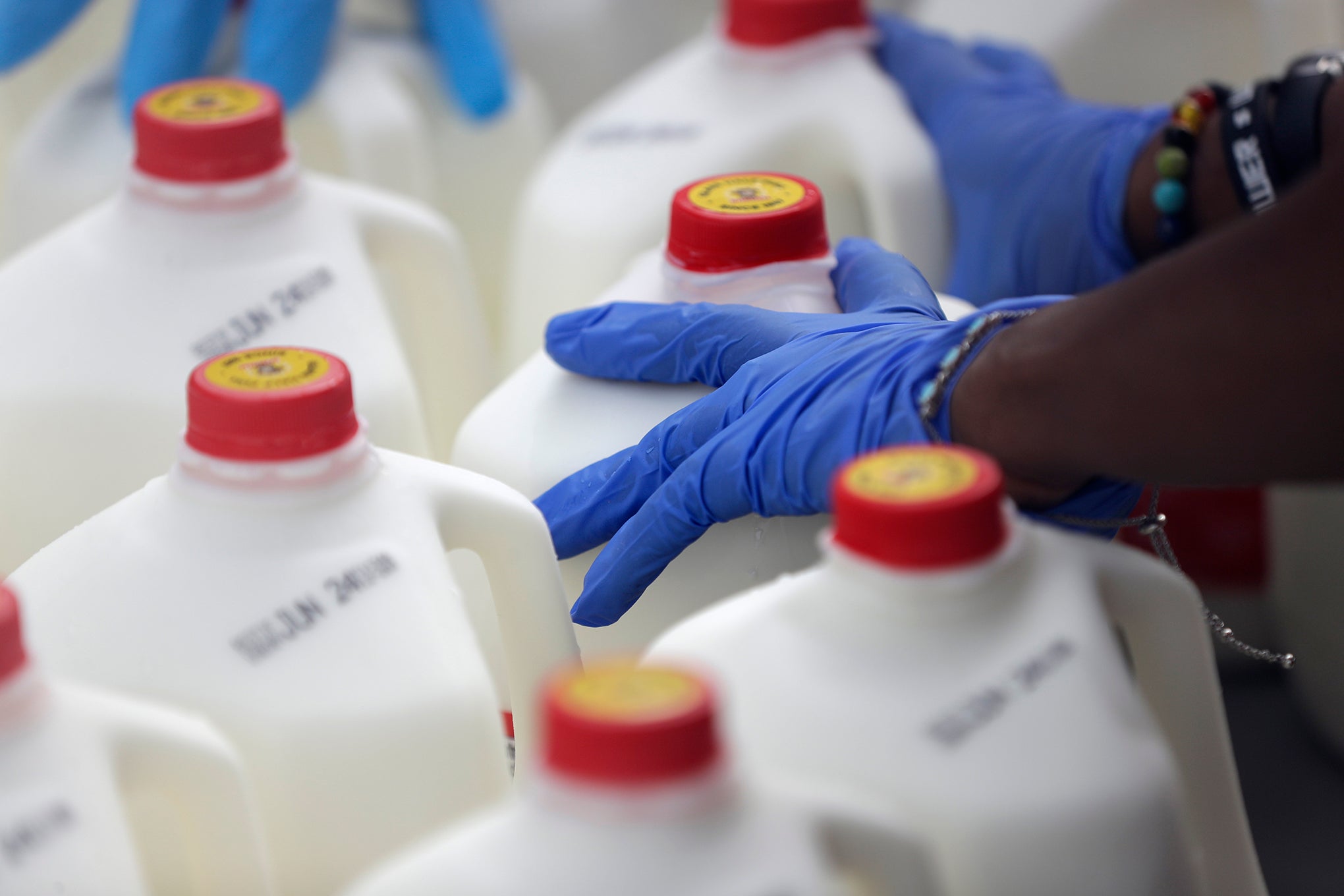By partnering with private labs around the state, the Wisconsin State Lab of Hygiene has increased new coronavirus testing capacity by thirty-fold, eliminating a backlog of test kits.
Still, due to significant shortages of testing supplies, testing is still being prioritized for health care workers, the critically ill and those at high risk for COVID-19 complications.
The State Lab of Hygiene has had to change its testing methods six times over the last month as supplies used to process suspected COVID-19 cases have dried up, according to Dr. Alana Sterkel, assistant director of the Communicable Disease Division.
News with a little more humanity
WPR’s “Wisconsin Today” newsletter keeps you connected to the state you love without feeling overwhelmed. No paywall. No agenda. No corporate filter.
“So, in that way, we’ve been working very hard to maintain that 400 tests per day capacity when other labs have not been as successful,” said Sterkel.
She said they’re still using the Centers for Disease Control and Prevention’s recommended testing process, which extracts the virus’ genetic material, but she said testing components, including chemicals known as reagents, are in short supply. She said by changing testing methods, they can get access to supply chains that haven’t been overwhelmed during the ongoing pandemic.
“We don’t really know if we’re going to get something until it shows up, often, or when it might come,” Sterkel said of the supplies. “But we have orders placed for all kinds of things, but some of the things have been on order for six weeks and there’s still no delivery date coming.”
Sterkel said by collaborating with clinical labs through the Wisconsin Clinical Laboratory Network, they’ve been able to eliminate testing backlogs.
“And we’ve been able to increase our capacity in the state by thirtyfold in the past month largely due to the additional testing by the clinical labs. It has been a huge, welcome need from these labs in the state,” said Sterkel.
Several wrote into WPR’s WHYsconsin wondering how long it takes to get results from COVID-19 testing. Some talked of delays, like Shontel Phillips, who said her husband still hadn’t received results from his COVID-19 test, which she said he was given on March 27 in Baldwin.
To conserve available testing supplies, the Wisconsin Department of Health Services is prioritizing who gets tested and where those tests are processed. Patients that require hospitalization for COVID-19 symptoms, those living in long-term care facilities with COVID-19 symptoms and health care workers are deemed a top priority, with tests being shipped to the State Lab of Hygiene or the Milwaukee Health Department Laboratory.
If a test is recommended by a physician for those not meeting the criteria outlined by the state, tests are sent to private labs at hospitals for processing. Patients who are suspected of having probable cases of COVID-19 without requiring hospitalization or meeting the state criteria, aren’t being tested.
While some hospital labs in larger cities have begun processing COVID-19 test kits in-house, many samples collected from smaller facilities in more rural parts of the state take longer to process due to shipping.
Aspirus, which owns a network of hospitals in north-central Wisconsin has developed its own in-house testing to speed the process up. Laboratory manager Daniel Lockwood said they’ve been working to purchase commercially available test kits to bypass the public health labs and get results quicker, but they’re simply not available.
“So far, for over a month now that we have been trying to obtain these,” said Lockwood. “We have not received any of the kits that we’ve ordered from commercial vendors.”
By following CDC instructions and collecting test supplies from its member hospitals, Aspirus is now able to process tests and get results within three to four hours. Lockwood said they’re able to process between 46 and 92 tests a day.
Mauri Bruggeman, another laboratory manager at Aspirus, said hospital and lab staff are also frustrated about the need to prioritize testing due to shortages of supplies.
“We understand that and empathize with patients wanting those results and I think we’re used to having quick results on a lot of the laboratory testing that providers say a patient needs and that has been hard on, not only patients, but on the laboratory team as well,” said Bruggeman.







